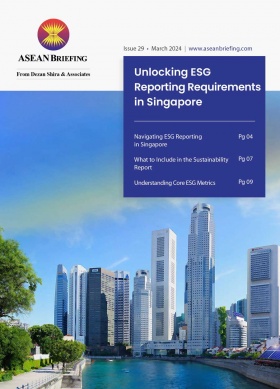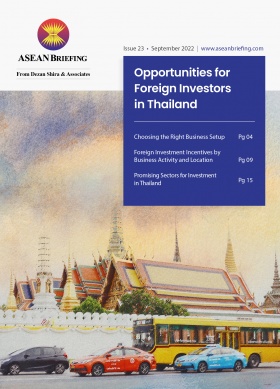Thailand Approves Tax Incentives to Boost Domestic Tourism in Low Season
Thailand’s government has approved new tax incentives aimed at stimulating domestic tourism during the traditional low season.
These incentives, which are available from May 1 to November 30, 2024, are divided into two categories: tax incentives for businesses holding seminars, and incentives for individuals traveling for leisure. Additionally, there are further tax cuts available for those traveling to selected provinces in the country which are deemed ‘secondary provinces’ by the government.
The move is part of the government’s short-term plans to stimulate the economy which has continued to lag regional peers with growth recorded at 1.5 percent in Q1, slowing from 1.7 percent from the previous quarter. The economy is expected to see modest growth at just 2.4 percent in 2024. Other measures will include offering tax incentives for small businesses as well as providing them access to credit. Further, the government plans to accelerate government spending.The approval of these tax incentives also reflects the government’s commitment to supporting key sectors like tourism, which has been severely affected by the COVID-19 pandemic and its aftermath.
What is included in the tax incentives?
Tax incentives for companies
Companies can deduct expenses (approximately 1.5 times) from their taxable incomes for expenses such as seminar rooms, transport, accommodations, service fees for tour operators, or other related costs for domestic seminars. The government will award double tax deductions for seminar expenses held in ‘secondary tourism provinces’ which are designated by the Revenue Department.
If a company undertakes seminars in secondary and non-secondary provinces simultaneously then the expenses are to be separated.
Tax incentives for individuals
Individuals can deduct up to 15,000 baht (US$408) in actual expenses paid to tour operators or for accommodation in hotels, Thai homestays, or non-hotel lodging when traveling to secondary tourism provinces.
Tourism to play a vital role in Thailand’s economy in 2024
With Thailand’s Finance Ministry lowering the country’s 2024 growth forecast to 2.4 percent from 2.8 percent, tourism will play a vital role in the economy amidst a lackluster recovery from slowing exports.
Tourism accounts for approximately 20 percent of the country’s GDP in recent years. This includes direct contributions from hotels, travel agencies, airlines, and other passenger services, as well as indirect contributions from related sectors such as retail and food production.
The government introduced a visa waiver program for Chinese tourists which enabled them to enter Thailand without a visa between September 25 and February 29, 2024. Between January and September 10, 2023, Thailand saw over 2.2 million Chinese visitors, making it the largest source of tourists after Malaysia. Without the visa exemption scheme, the government expected to see 3.4 million Chinese visitors for the year, or 31 percent of the total in 2019.
Looking ahead, the third National Tourism Development Plan for 2023-2027 projects that the tourism industry will contribute 25 percent of Thailand’s GDP by 2027. In line with this projection, the Thai government aims to attract some 36 million international arrivals in 2024 and generate over 3 trillion baht (approximately US$81 billion) in revenue.
About Us
ASEAN Briefing is produced by Dezan Shira & Associates. The firm assists foreign investors throughout Asia and maintains offices throughout ASEAN, including in Singapore, Hanoi, Ho Chi Minh City, and Da Nang in Vietnam, in addition to Jakarta, in Indonesia. We also have partner firms in Malaysia, the Philippines, and Thailand as well as our practices in China and India. Please contact us at asean@dezshira.com or visit our website at www.dezshira.com.
- Previous Article Cambodia and Philippines Conclude Double Taxation Avoidance Agreement
- Next Article Vietnam’s Expanding Halal Export Opportunities








